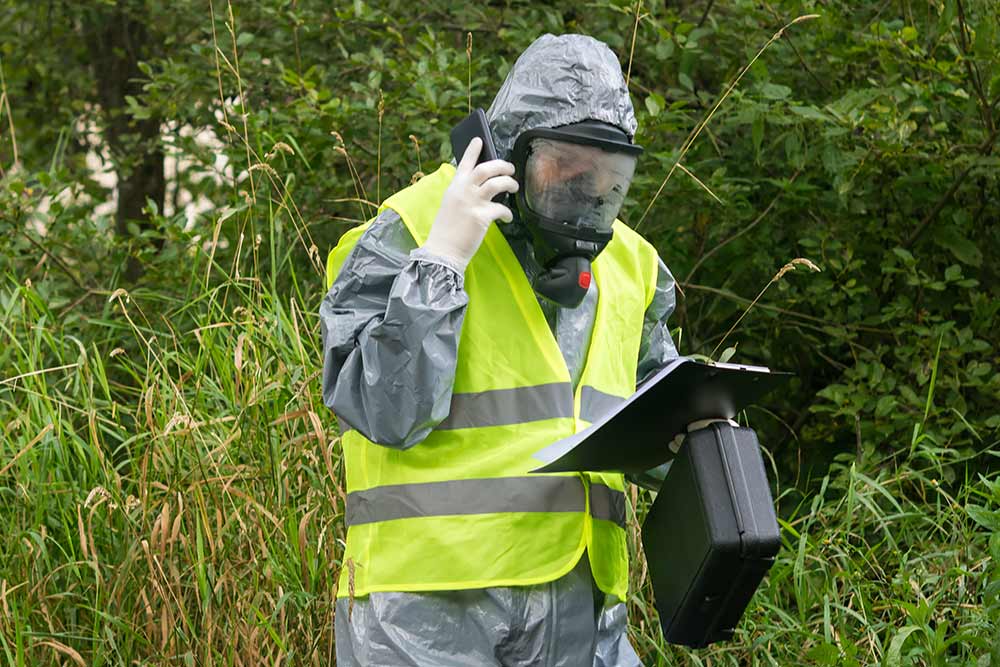How to Stay In Compliance With State Chemical Reporting Rules
It’s no secret that chemical use is a part of any successful landscaping protocol. Whether it’s pesticides, herbicides, insecticides, fertilizers, wetting agents or others, chemicals are usually part of the process. It’s also no secret that many chemicals can have a negative effect on the environment and on human health in certain situations. That’s why states have specific rules and requirements as it pertains to using chemicals lawn care, landscaping and tree service.

For landscaping and lawn care companies, staying in compliance with state chemical reporting rules is crucial, but it’s not always as simple as it seems. Complicating matters is the fact that regulations tend to vary from state to state–a particular headache for companies that operate in multiple jurisdictions.
The Role of a Plant Health Care Technician
Plants and trees can encounter issues for several different reasons, and it is often up to a plant health care technician or landscape technician to diagnose the problem and rectify the situation. A landscape technician will monitor the plants in question, make note of its condition and any stressors and take the necessary steps to bring it back to health. In some cases, this can include using chemicals if there is an abundance of damaging pests or insects or if proper maintenance hasn’t been kept up.
Common Landscaping Chemicals
Lawn care specialists and landscapers use a range of different chemicals to control both weeds and pests. Below is a list of some of the specific groups of chemicals that are used. Make sure to check if it’s permitted to use any chemicals in your state before you make the decision, and take the time to check which ones need to be reported before getting to work.
Organophosphate Insecticides – these are used for insect control on trees, lawns and shrubs and include chemicals like diazinon, malathion, dimethoate (Cygon), acephate (Orthene) and chlorpyrifos (Dursban),
Pyrethroids – these are synthetically derived insecticides that are modified from natural pyrethroids to improve certain features. Examples include cyfluthrin (Tempo), deltamethrin (Deltagard), fluvalinate (Mavrik), permethrin (Astro) and cyhalothrin (Scimitar),
Botanical Insecticides – some plants are sources of insecticides, including pyrethrum, which is an extract of the dried flowers of the pyrethrum daisy, Chrysanthemum cinerarifolium.
Specific Miticides – most insecticides are not effective against mites, which is why there are specific miticides that are used for mite management.
Insect Growth Regulators (IGR’s) – these insecticides disrupt the growth of insects so they are unable to flourish and cause damage.
Horticultural Oils – a variety of highly refined oils can be used to control insects by smothering or because they are toxic to the insect.
Herbicides – there are several categories of herbicides that are designed to control specific vegetation growth and weeds. Some common categories include post-emergent landscape, post-emergent grass, post-emergent non-selective herbicides and soil sterilant herbicides.
Using Software to Stay Compliant
At Aborgold, we offer software that can help keep your landscaping business organized and compliant when it comes to state chemical reporting rules. We have identified a 4-step process that you can take using our software to stay on top of things and eliminate many of the headaches associated with compliance in this area.
1 – Track All Chemical Inventory On Your Work Orders
Typically, a work order will include a list of deliverables. In that list should be all of the regulated chemicals that were used for the job. It’s important to have a record of what was used so if it ever comes up, you know you are covered. When you are using our software, this will generate an automatic and easily accessible “paper trail” that includes all regulated chemicals you’re using.
2 – Save All Chemical Data (In More Than One Place)
Once the job is complete, it’s a good idea to store your chemical usage data by saving it in more than one place. It’s crucial to note that just saving your data on your hard drive isn’t enough. There is always the risk of a data breach or data loss for some reason if you run into computer issues. It’s important that you have a back cloud storage solution to keep your data for safekeeping.
3 – Maintain Good Chemical Usage Records
If you’re using a scheduling or work order management software that can track chemical usage online, you’re set for success. With daily backups and redundant data, you’ll have access to your chemical usage at any time. However, if you’re tracking on paper, state chemical reporting rules demand that you include financial accounting of the chemicals you have bought, sold, used, and disposed of. It’s critical to keep either paper copies of your work orders or store and scan your invoices electronically for safekeeping.
4 – Create a Simple Report With All Data Pertaining To Chemical Inventory and Usage
investing in easy-to-use scheduling, estimating, and billing/invoicing software that comes equipped with chemical tracking features is the best way to stay on top of state chemical tracking requirements. If you rely on paperwork orders and excel sheets, it’s easy for this important information to fall by the wayside and end up not being entered correctly or at all.
A Range of Different Features
It’s plain to see that when you have comprehensive business software working in your favor, it becomes much easier to run your business overall. You can record all of the information that needs recording, save it where it needs to be saved and automate a range of processes to ensure you’re on the right side of government compliance and the law.
Arborgold’s billing and invoice features let you instantly record all chemical information (type, quantity, pricing, and cost data) for each regulated chemical you use on a job. In addition to all the great scheduling, phone center, mobile estimating, and reporting features, Arborgold will sync your invoices and customer data to Quickbooks online and Quickbooks desktop instantly, so you’re recording all of your project-related data without additional manual data entry.
Arborgold makes chemical tracking compliance easier than ever before.
Take a tour today and let us know what you think.
Share this resource



